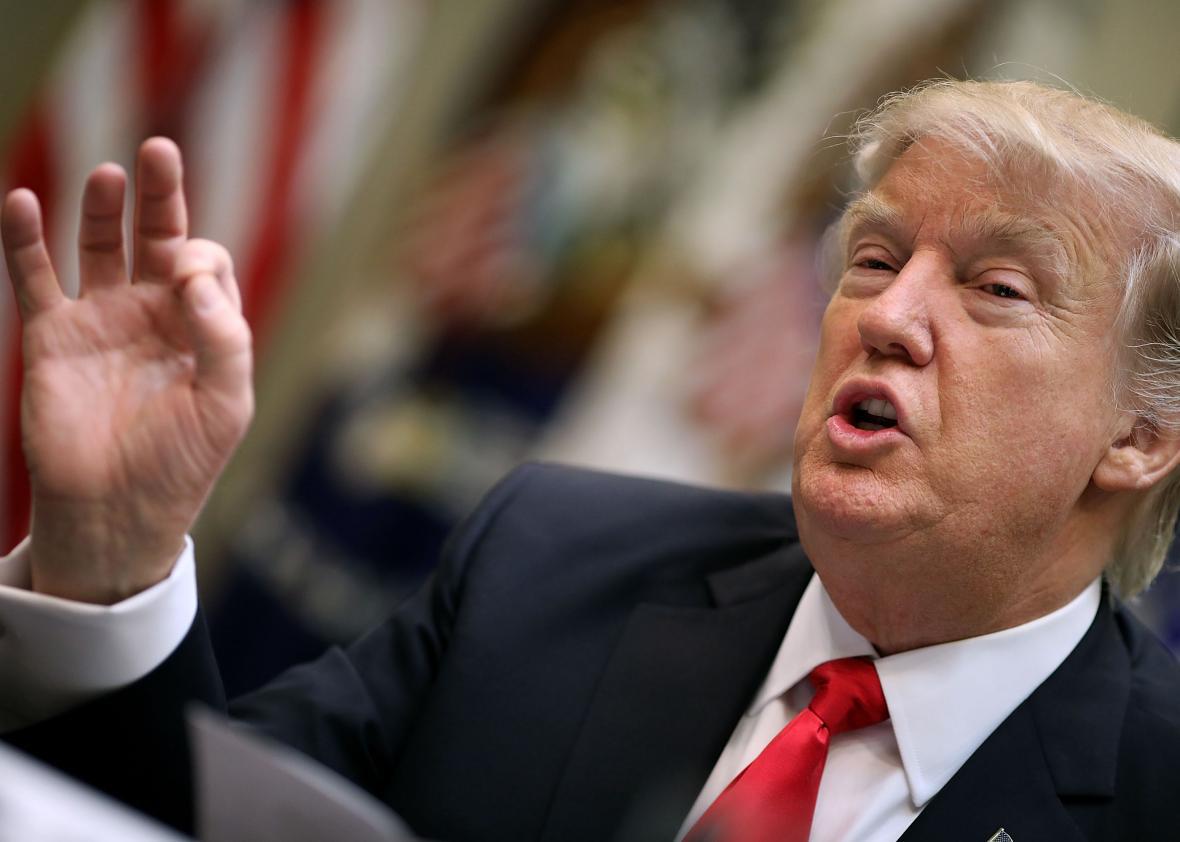Ever since it was created by Congress in 1946, the Council of Economic Advisers has acted as a sort of in-house think tank for presidential administrations, ready to answer any and all questions related to the dismal science. Typically led by a renowned academic economist—future Fed Chairman Alan Greenspan was one exception to that rule—it provides input on policy, produces the annual Economic Report of the President, briefs POTUS on developments like the monthly jobs report, and more. At times, it has been deeply influential. Christina Romer, President Obama’s first CEA chairperson, was the key early advocate for using a massive stimulus bill to blunt the Great Recession, for instance.
President Donald Trump has yet to pick his own CEA chairperson. But whoever fills the role will not likely have a particularly powerful voice in the administration. According to the Wall Street Journal, Trump has decided that it will no longer be considered a “Cabinet-level” role, as it was under Obama. In a sense, he’s symbolically demoting the economics profession as a whole.
Trump has never relied much on economists. This isn’t especially surprising, since he generally disvalues expertise (especially of the academic variety) and vanishingly few practitioners of the discipline see eye to eye with him on policy. During his campaign, Trump’s official board of economic advisers included just one Ph.D. economist—Peter Navarro, the anti-China polemicist whose views about trade are widely considered outside the academic mainstream. The other people on the list with some formal econ training included Stephen Moore, the journeyman conservative tax-cut evangelist, and David Malpass, who as chief economist of Bear Stearns told the world in 2007 not to worry about the credit crisis.
Navarro is now the White House’s trade czar. But aside from that, Trump’s economic policy team is dominated by finance and business veterans—commerce secretary pick Wilbur Ross is a private equity billionaire; Treasury Secretary–designature Steve Mnuchin waltzed from Goldman Sachs to the hedge fund world to owning and running a regional bank; National Economic Council Chairman Gary Cohn was president and chief operating officer of Goldman Sachs. They are not men whom you’d probably call on to make or explain detailed projections about economic growth; Ross’ attempts with Navarro to “score” Trump’s policy proposals during the campaign were amateurish, at best. But it’s not as if Trump has ever been one to care for careful data-based analysis.
It’s unclear who might ultimately fill the top CEA spot. At first, CNBC talking head Larry Kudlow, who lacks an economics degree, seemed to be the lead contender, but his pro–free trade views seem to have scuttled his chances. There’s also been some talk about the American Enterprise Institute’s Kevin Hassett, who is generally well-regarded in conservative policy circles, and known outside of them mostly as the co-author of the hilarious late-’90s tech-bubble relic Dow 36,000. It’s unclear whether his stock is rising or falling. But in a sense, it may not matter much. Whoever gets picked, the lucky winner will pretty clearly be a second-tier player in Trumpland.
This is not a particularly great tragedy in the overall scheme of the current White House. And it’s not as if the secret to a successful presidency is listening carefully to every last word uttered by the Ph.D.s on your staff—economists get things wrong all the time. But it does feel like one more symbol of this Dunning-Kruger presidency, where the amateurs are consistently convinced that they know more than the experts.
